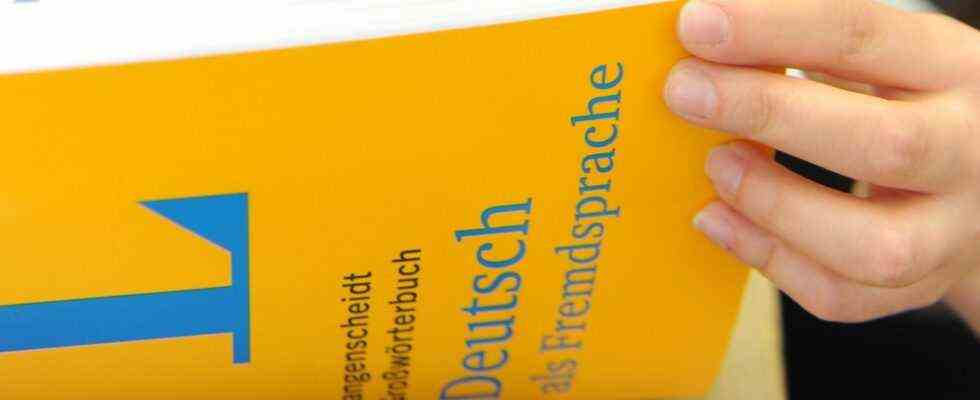“Even the air is different here.” Vara L., on the other end of the phone line, is breathing quickly, it’s already dark and she is on her way to pick up her son from school. She doesn’t want to let the ten-year-old go home alone. When her husband can’t pick him up because he has to work, she goes to the after-school care center, where he has a place until five in the evening. Enis (all names changed) is already waiting for his mother.
Giving her children a safe home is the most important thing for her, explains the 33-year-old. After seeing the breakdown of everything that made up their lives before the Syrian civil war began. “I no longer understand it, I no longer know who wants what there,” she says, and it is as if she wants to keep everything that affects her home country away from herself by not talking about it. She does tell a little bit about her village, where mostly the men worked while the women stayed at home and looked after the children. But you don’t. “I have already worked as a teacher in Syria.” Vara L. studied, learned English, taught for four years, Arabic and English for the first four grades. “My father always supported me.”
“We just wanted the children to be happy,” says Vara L.
And then the fighting drew nearer, the schools were closed. For a year and a half they waited for the war in her husband’s village until the family decided to flee. First to Turkey. Through the Syrian-Turkish no man’s land. “They sent us back. We tried again after a week.” With three small children at the time, the youngest, now she is five, was not yet born. “We just wanted the children to be happy,” says Vara L. Without anything to eat or drink, the family waited at the border – and this time she was luckier. “A commanding officer saw my little daughter, she was so sick. Then he let us in.”
Vara L. and her family stayed in Turkey for three years, they were able to communicate using Arabic and Kurdish, their mother’s language, and her husband earned a living in a factory. She could not work herself, “the children were sick”. All three girls have problems with their eyes, the oldest, now eleven, cannot read without glasses, the two little ones have had several eye operations, and the youngest has difficulty breathing through her nose.
The couple’s hopes rested on Germany. They were allowed to leave the country at the end of 2018 and were housed in a refugee accommodation in the district for two years. Six people, 33 square meters. “My advantage was that I could speak English,” says Vara L., so she could at least communicate, talk to the authorities, buy milk for her children. And interpreting for fellow refugees, talking to the district administration, the job center, and Caritas. Nevertheless, it was not easy with the children in the accommodation, especially not when the first Corona lockdown came, their daughters and their son could no longer meet playmates. “There was no room for the children in the accommodation,” says Vara L., but she doesn’t want to complain. “Germany has helped us a lot. We want to build something here.” They have been out of their accommodation since August, have found an apartment, Vara L.’s husband has a mini-job in a shop in Munich, he doesn’t find it as easy with the language as she does.
“I like the German language a lot. I want to be able to do that.”
The Syrian goes to the adult education center for a German course every day, has already passed the first tests, and the B1 exam is due at the beginning of the new year, which she will surely pass as well. Every evening when the children are in bed, she sits down and studies; Vocabulary and grammar, “I like the German language a lot, I want to be able to do it,” she explains. The B2 exam is the next level that she wants to climb, then training to become a kindergarten teacher, she has already completed an internship. “I always have to go on,” she says, “I want my children to have security and love.”
But until that happens, the Syrian spouses have to see how they make ends meet. Government support is scarce, until they can both work, they hardly have any money. But it is even more stressful that Vara L. has to constantly go to the doctor with one of the girls or to the children’s clinic in Munich, she has to take care of speech therapy for the little ones, her glasses have also broken and she needs a hearing aid. The oldest, now in fifth grade, needs a laptop for school. When the children last had to be in quarantine – after a group excursion, a child tested positive for Corona – they couldn’t do anything, the mother says, she wasn’t allowed to go to school, couldn’t follow the material. But, and you can hear that in every sentence that Vara L. formulates – in such good German that it is no problem to follow her: Everything is better than being in Syria. Where her parents went, whom she hasn’t seen in seven years, and her siblings. Where she lost her youngest brother. He was 17. “It’s my homeland. But I don’t like this country.”

